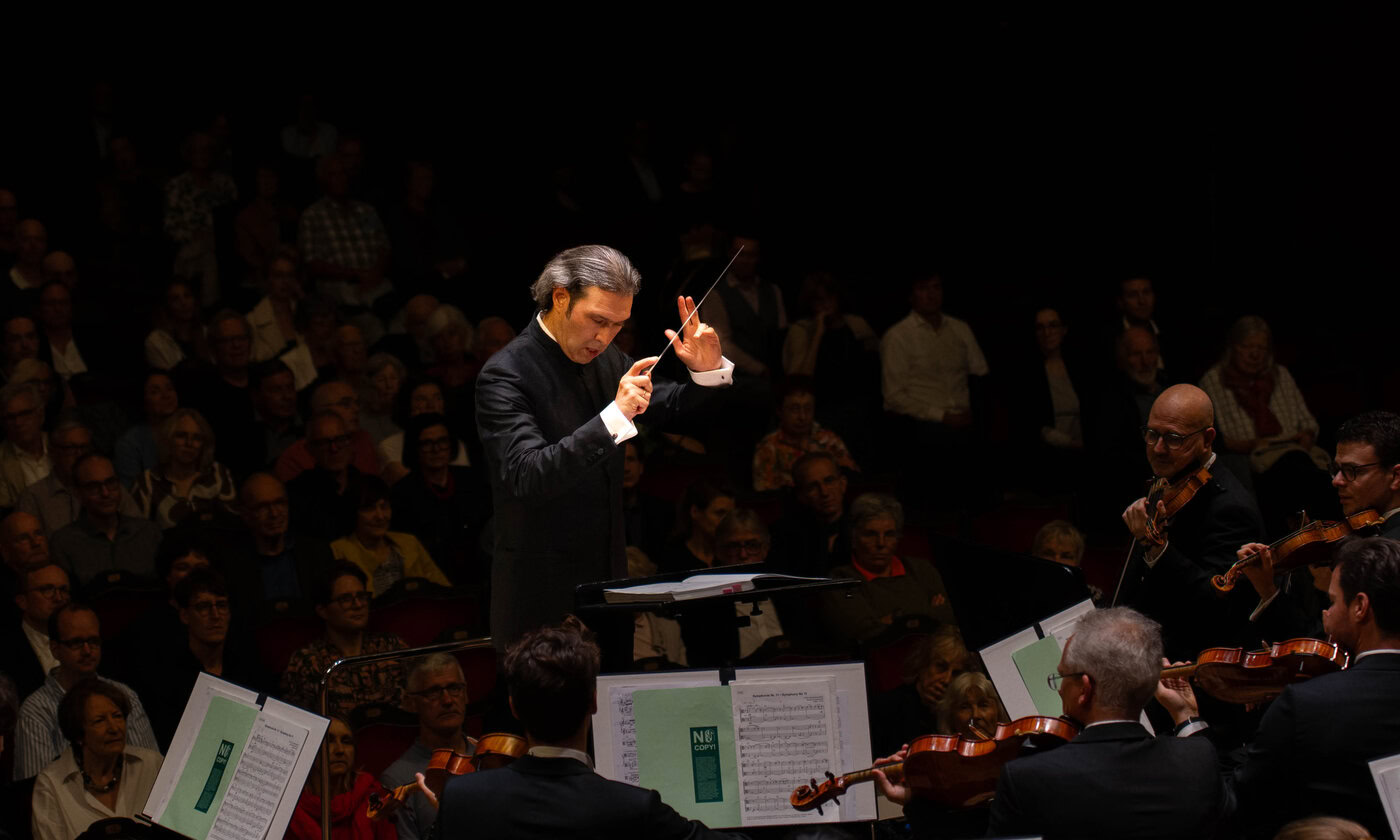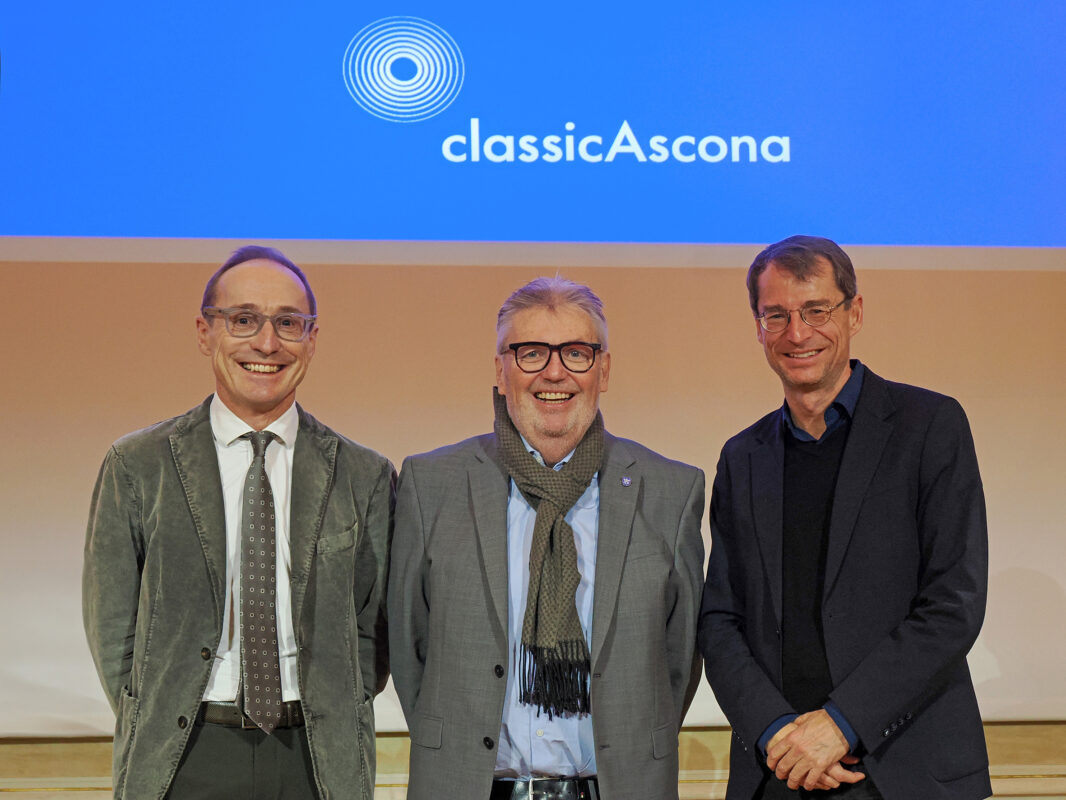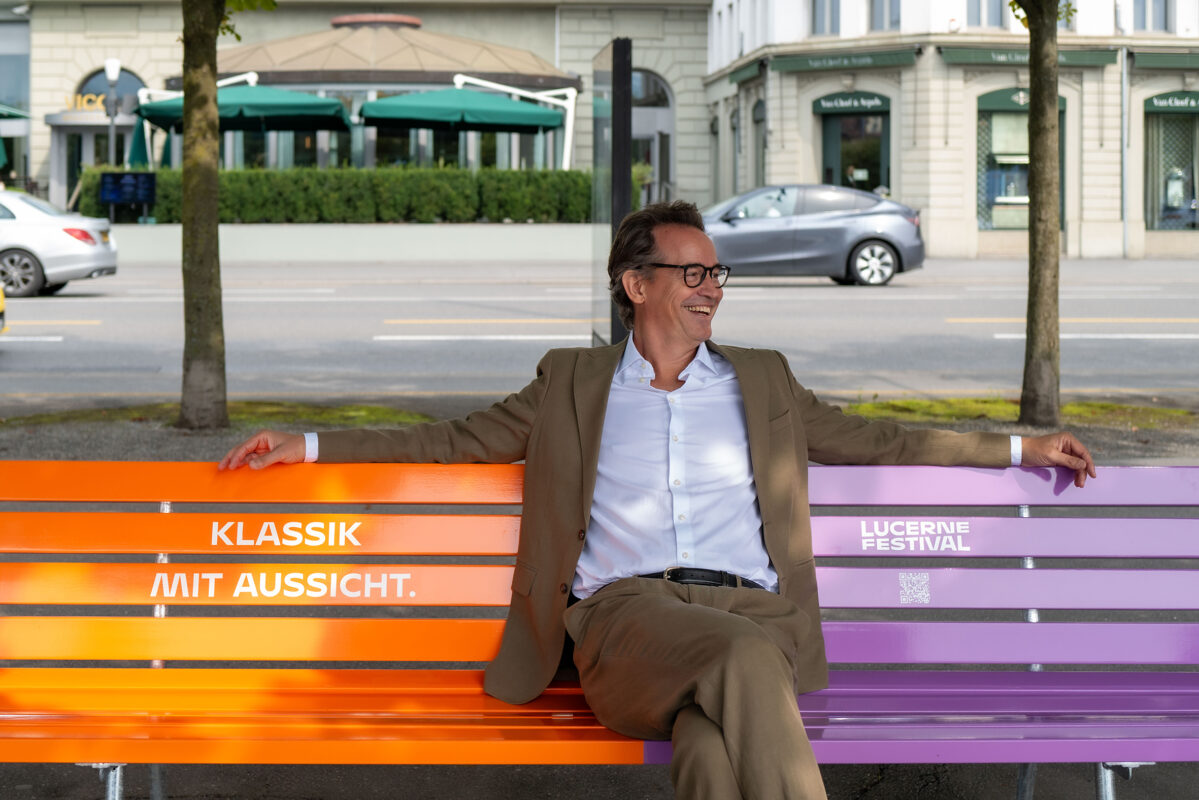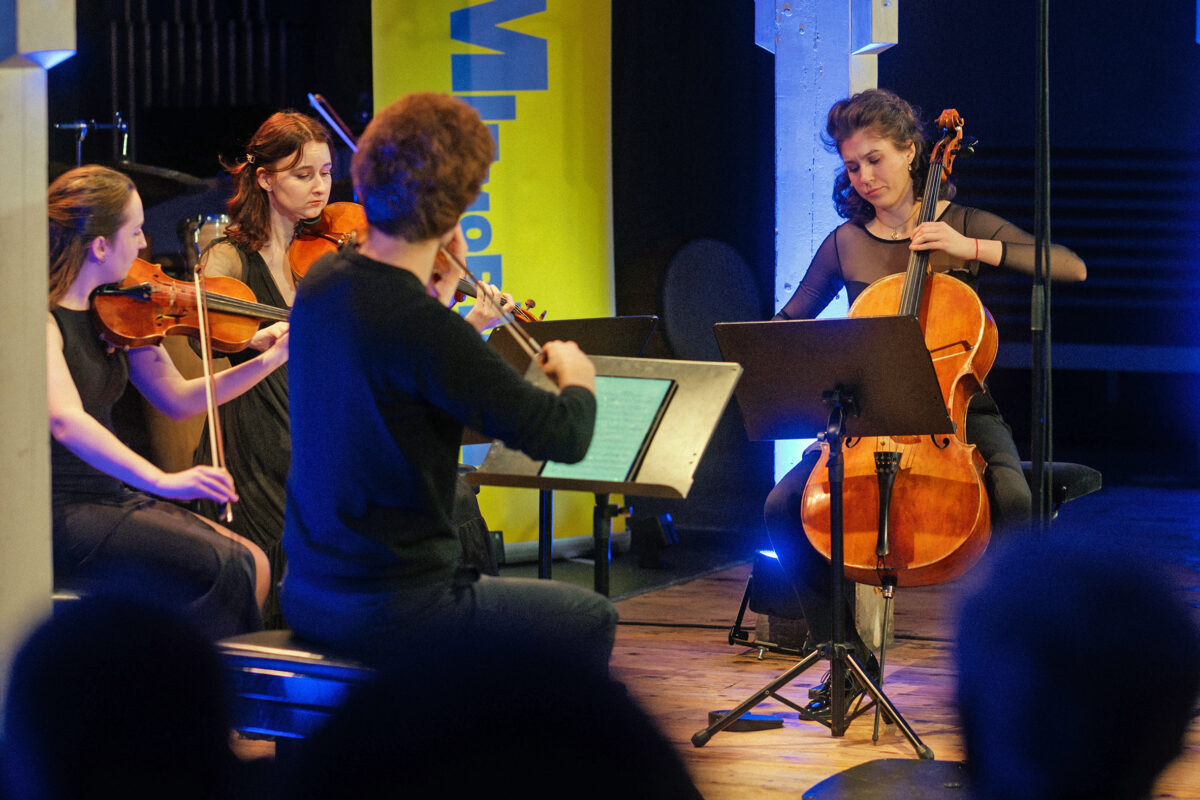Of censorship, rebellion and death
In mid-September, "Macht Musik - Ein Festival über die Freiheit der Kunst in Diktaturen" took place at the Stadtcasino in Basel. It offered revealing insights into musical life in the Soviet Union.

Music in dictatorships is an almost inexhaustible field. The Basel festival on this topic focused on the Soviet Union. Works by Dmitri Shostakovich and Sergei Prokofiev, the two best-known Soviet composers, were performed, as well as works by composers (no female composers) who are never heard in concert in this country.
A highlight at the beginning with Shostakovich
The fact that the Rundfunk-Sinfonieorchester Berlin (RSB) could be brought to Basel for a concert was an absolute stroke of luck. Under the direction of Vladimir Jurowski, an outstanding conductor who brings the music vividly to life, the first part of the concert featured works with topical political references to the period in which they were composed. Lidice by Bohuslav Martinů is a harrowing homage to the village in the Czech Republic that was razed to the ground by the Nazis; with the Meditation on the old Bohemian chorale St. Wenceslaus Josef Suk wanted to support the efforts to establish a Czechoslovak state; Arnold Schönberg wrote the Ode to Napoleon Buonaparte In 1942, while in exile in America, he set a diatribe by Lord Byron on Napoleon to music with obvious references to the current situation at the time.
After the interval, we heard the monumental 11th Symphony by Shostakovich, which lasted over an hour. It was played with extreme commitment and discipline. First performed in 1957, this symphony subverted the regime's expectations of a significant piece for the 40th anniversary of the October Revolution, with the composer thematizing the 1905 uprising in St. Petersburg, where the Tsar had had a starving, unarmed crowd shot at.
It does not take much imagination to see the work as a reminder of all violently suppressed attempts at rebellion, such as the Hungarian uprising in 1956. Although the composer outwardly fulfilled the norms of "socialist realism", the quotations - which were not recognized by the authorities - mean that the symphony can certainly be understood as critical of the regime. In his depiction of the massacre, Shostakovich goes to the limits of what concertgoers' ears and the acoustics of a concert hall can bear; it gets under your skin. This concert was a first, long-lasting highlight of the festival.
The following evening, the Belcea Quartet, well known in Basel, and the excellent pianist Yulianna Avdeeva played the well-known piano quintets by Shostakovich and Mieczysław Weinberg.
Ukrainian composers in the Soviet era
The three works by Ukrainian composers in the concert with the Kyiv Symphony Orchestra under the direction of Oksana Lyniv were perhaps not beyond all doubt. The simplicity of the Triple Concerto by Maxim Shalygin (born 1985), who now lives in the Netherlands, was the least captivating. The fate of Vasyl Barvinsky (1888-1963), on the other hand, is touching: ordered by the authorities to agree to the destruction of his manuscripts, he spent 10 years in the Gulag and spent the remaining years of his life trying to reconstruct his works. His Ukrainian Rhapsody is a relatively lightweight piece in the tradition of Dvořák and Smetana. The Heroic symphony by Yevhen Stankovych, a now 83-year-old composer who also suffered from censorship, is not an absolutely satisfying work as a whole, but contains remarkably orchestrated passages.
Cloudy thoughts instead of regime conformity
After a brilliant interpretation of Sergei Prokofiev's 6th Piano Sonata (1939/40), the outstanding Ukrainian pianist Alexey Botvinov played the 3rd Piano Concerto Hail Mary (1968) by Alemdar Karamanov (1934-2007) in his own arrangement for solo piano: a work characterized by strong religiosity that captivates the audience with its expressiveness, although it was composed with very old-fashioned means at the time of its creation.
Very important in the festival context was the performance of Shostakovich's 14th Symphony op.135 for soprano, bass and chamber orchestra from 1969. This work, dedicated to his friend Benjamin Britten, revolves around death in its very different manifestations in settings of poems by García Lorca, Apollinaire, Küchelbecker and Rilke. The composer, inspired by his orchestration of Mussorgsky's Songs and dances of deathno longer attempted to compose music that was compatible with the ideals of the Soviet state, but instead gave expression to gloomy thoughts of lack of freedom, resignation and death. The performance, conducted by Heinz Holliger and featuring Evelina Dobračeva (soprano), Michael Nagy (baritone) and the Basel Chamber Orchestra, was enthusiastically applauded by the audience.
Backgrounds in lectures and discussions
Artistic Director Hans-Georg Hofmann, who until recently worked for the Basel Symphony Orchestra, made sure that the festival program was rounded off with numerous introductory lectures, readings and panel discussions with important background information. Among other things, the audience learned how diverse Soviet music was and that only a fraction of it is known in the West. Also that the image of Shostakovich has constantly changed in the 50 years since his death: Was he now a dissident, a figurehead or a Faustian figure who had made a pact with evil? It is often forgotten that Stalin, who appears to us as the embodiment of evil itself, had a keen interest in music. Mikhail Shishkin's memory of Véronique Lautard-Shevchenka (1901-1982), a French pianist who disappeared for years in the Gulag because of an ill-considered statement and who touched many people with her piano playing after her release despite the most adverse circumstances, was particularly harrowing.
In view of these mediation efforts, it is a shame that the audience was only given a brochure with rudimentary information about the program without movement titles, years of composition and biographies of the composers. And perhaps even more people would have been tempted to visit the festival if it had had a more meaningful title instead of the ambiguous "Macht Musik".








